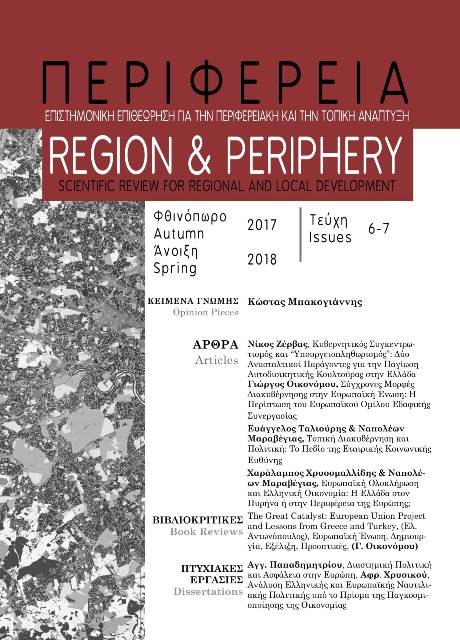Book Review: B. Temel (ed.) The Great Catalyst: European Union project and lessons from Greece and Turkey, Lanham: Lexington Books, 2014
Abstract
This collective volume is a valuable contribution to the literature on the interaction between Turkey as a candidate country and Greece as a Member State, and the EU. Eleven Turkish and eight Greek scholars provide informative and timely essays on the experience of the two states regarding different aspects of European integration. The individual contributions show how Turkish elites tried to instrumentalize EU-Turkey’s relations in order to reform the domestic governance system (p.169). The contributions anticipate, to some extent, the subsequent outbreaks of authoritarianism in Turkey. On the other hand, by taking a snapshot of the Greek economy in the midst of recession, the book takes a gloomier perspective on Greece's prospects within the EMU. Therefore, based on recent performance, euro area macroeconomic conditionalities appear to be seen as a burden that Greece should be relieved of if it is to respond to the increasing=g pressure of Turkey.
Article Details
- How to Cite
-
Antonopoulos, E. (2018). Book Review: B. Temel (ed.) The Great Catalyst: European Union project and lessons from Greece and Turkey, Lanham: Lexington Books, 2014. Perifereia | Regional Integration: Politics, Economics, Governance, (6-7), 99–100. https://doi.org/10.12681/rp.17010
- Section
- Book Reviews

This work is licensed under a Creative Commons Attribution-NonCommercial 4.0 International License.
Authors who publish with this journal agree to the following terms:
· Authors retain copyright and grant the journal right of first publication with the work simultaneously licensed under a Creative Commons Attribution Non-Commercial License that allows others to share the work with an acknowledgement of the work's authorship and initial publication in this journal.
· Authors are able to enter into separate, additional contractual arrangements for the non-exclusive distribution of the journal's published version of the work (e.g. post it to an institutional repository or publish it in a book), with an acknowledgement of its initial publication in this journal.
· Authors are permitted and encouraged to post their work online (preferably in institutional repositories or on their website) prior to and during the submission process, as it can lead to productive exchanges, as well as earlier and greater citation of published work.



